Madame Samia
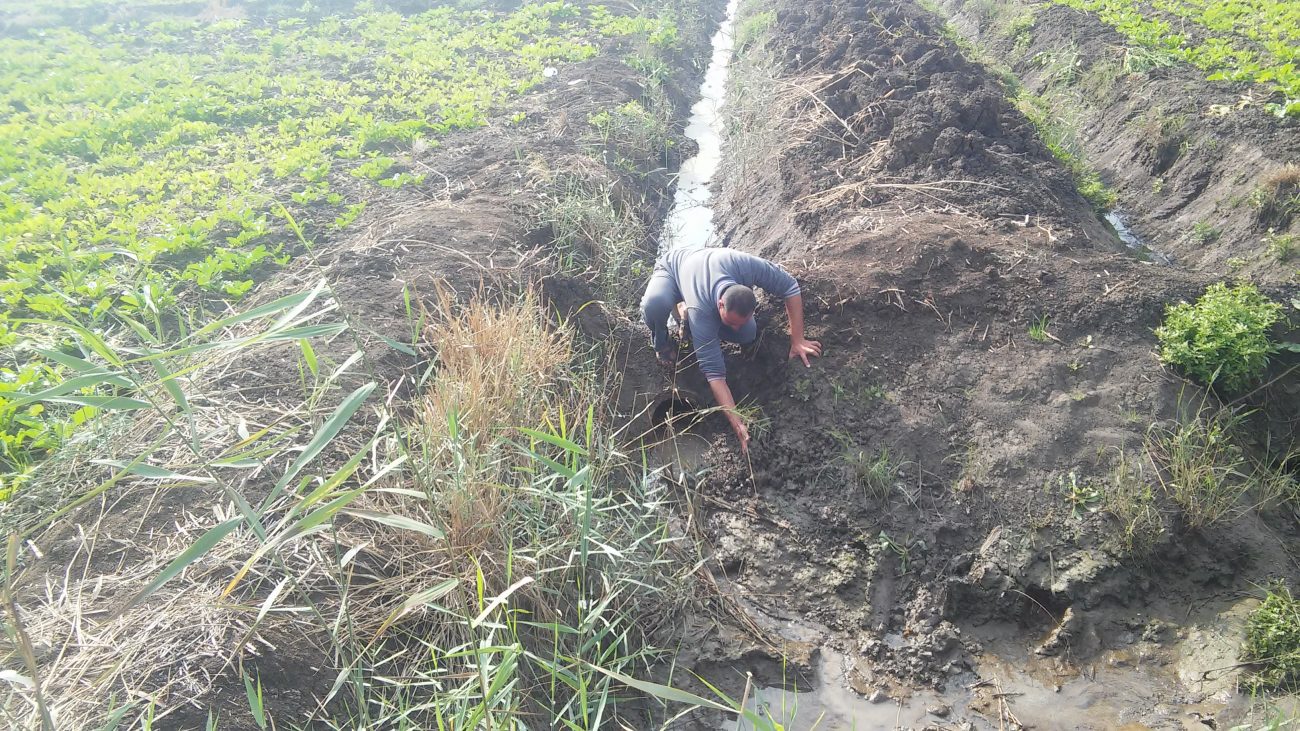
After her husband’s death, Madame Samia and her daughter vowed to keep the farm and continue the family’s agricultural investment. Madame Samia does not have much agricultural knowledge and experience, which is why she hires a farm supervisor from the area with a background in agriculture to help her manage the land. The supervisor provides her with advice on the best practices for land improvement, productivity and soil quality, is responsible for monitoring the land in terms of its crop and water management, and reports to her about the sharecroppers. Madame Samia’s permanent residence is in Cairo, but she drives to the El Salam Canal once every couple of weeks to stay in the farm house for a few days.
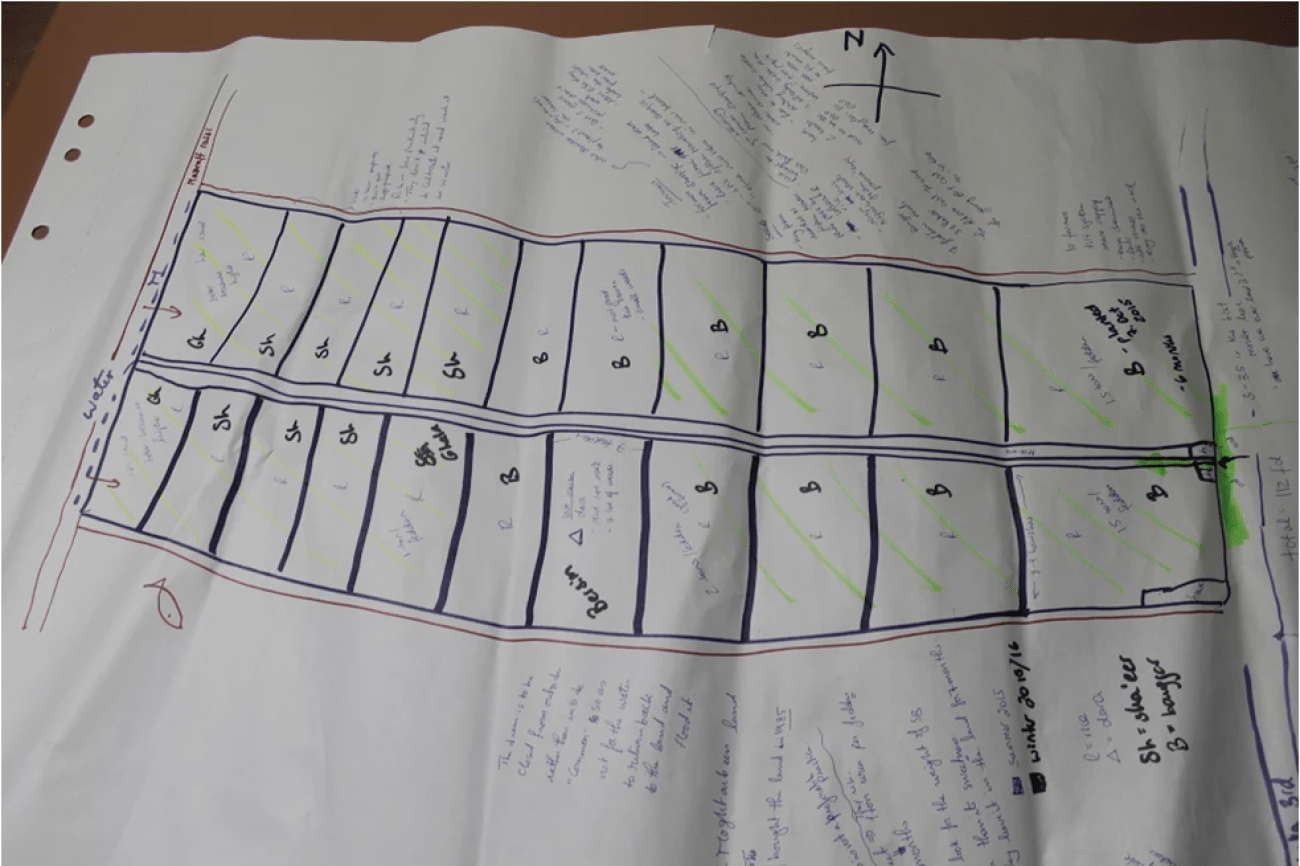
Madame Samia’s land is located directly on the branch canal, and it runs perpendicular to the El Salam Canal. On its eastern side, the land borders the branch canal, and on the western side on an agricultural drain. According to Madame Samia, the soil quality conditions, such as for example salinity, differ across the 22 different parcels. The area of better soil quality is the part located next to the branch canal, while the part of her land that is of poorer soil quality is located on the western end of her land, near the drain. The cause, according to Madame Samia and her land manager, is excess drainage water in the drainage canals resulting from the presence of fish farms beside her land. The high drainage water level floods into her land affecting the salinity level of the soil and hence the soil productivity.
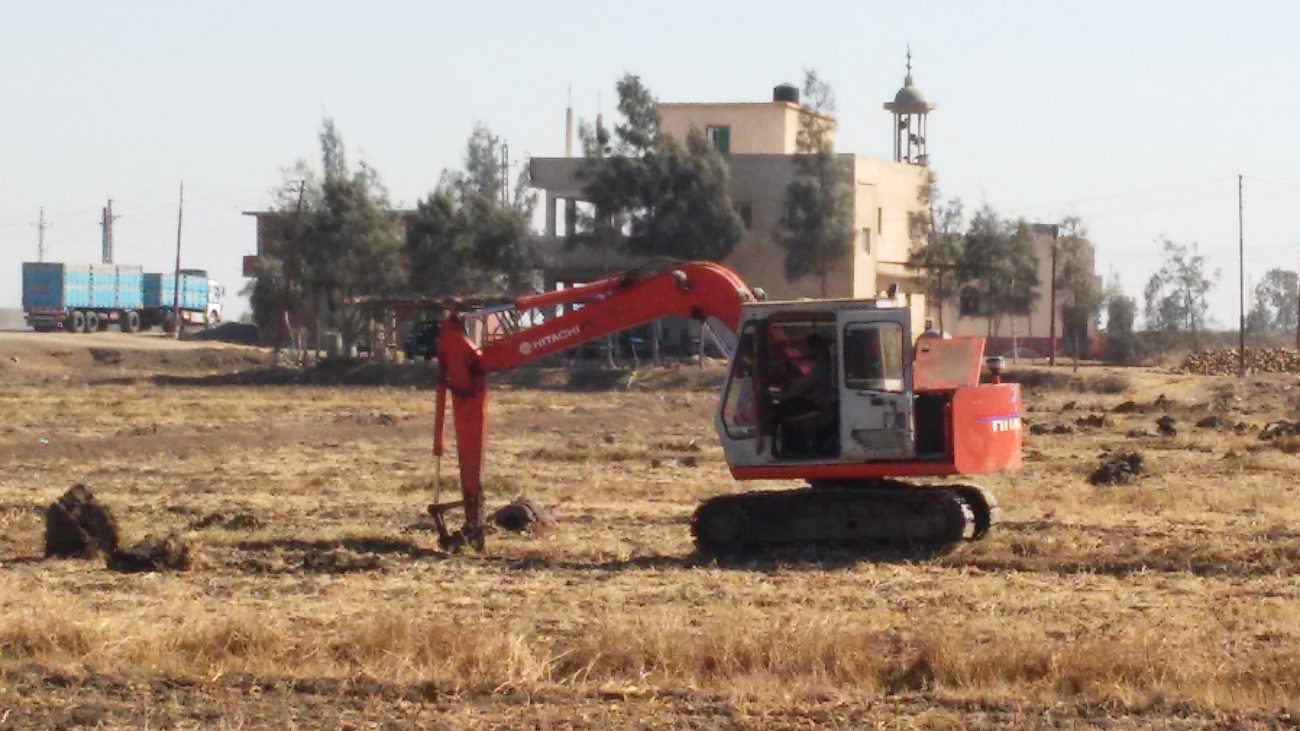
Before the season starts, Madame Samia conducts laser leveling on the land in order to adjust the soil level across all the plots and to ensure that the irrigation water is distributed more evenly. She decides together with her sharecroppers what type of crops will be cultivated each season. She is responsible for purchasing the fertilizers, pesticides and the seeds, while the sharecroppers are responsible for the cultivation process, irrigation, labor cost and harvesting.
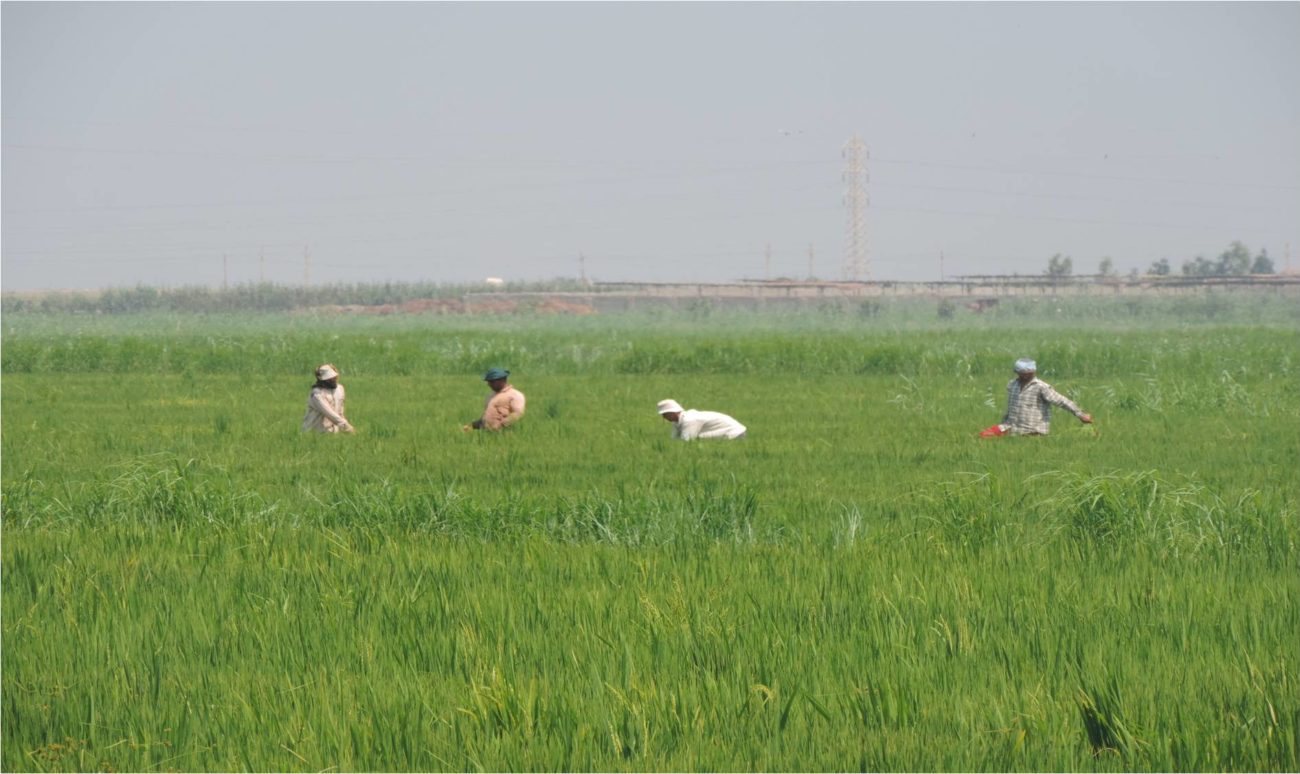
In summer, farmers cultivate rice, maize, cotton while in winter some of them plant wheat, sugar beet clover and barley. Madame Samia, her land managers and sharecroppers decide for rice as summer crop most years, as it helps in leaching the salt out of the soil due to the long periods of water flooding during cultivation. Another reason for selecting rice as the main summer crop is its high profitability, although recently its price has been dropping.
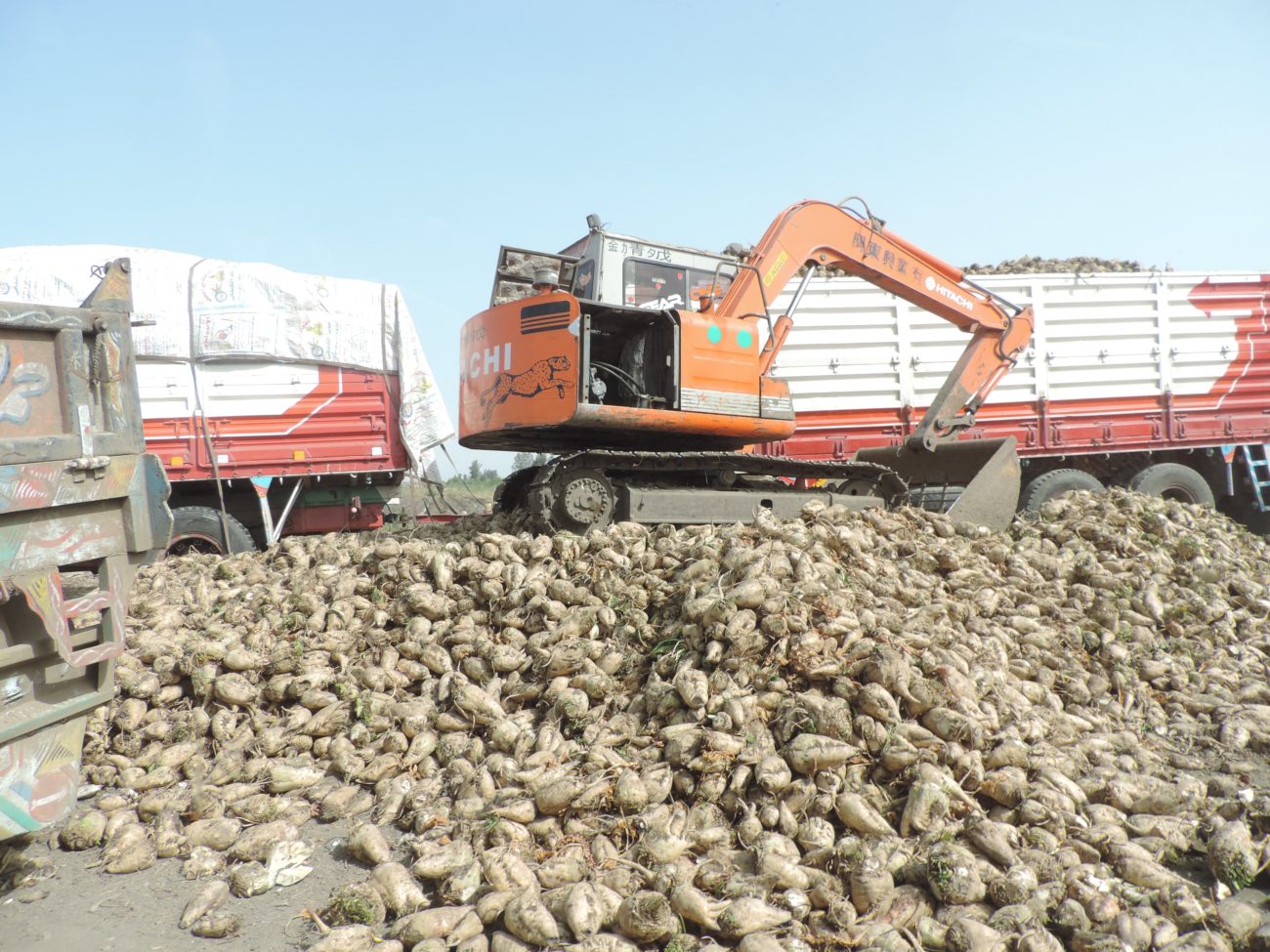
In winter, most of Madame Samia’s sharecroppers prefer to cultivate sugar beet due to its competitive price in comparison to other winter crops; the seeds are usually supplied from sugar factories that at the end of the season buy the cultivated crops from the farmers. The price is determined by the amount of sugar extracted from the beets.
A female landowner managing a property of this size in the El Salam Canal area is not a frequent occurrence. Madame Samia initially had a hard time taking over the responsibility for the farm, as she was not used to giving orders, especially to men. Then, she discovered that she had to be more firm with her employees so that they would take her seriously.
It worked. The supervisors and sharecroppers accept and respect this educated farm lady, who as a Cairo resident remains an outsider to the area, but also has an air of international experience about her, and very good manners. Although she knows how to be firm, she always speaks with the male farmers who work for her with in a gentle tone. She even welcomes them and their families into her house.
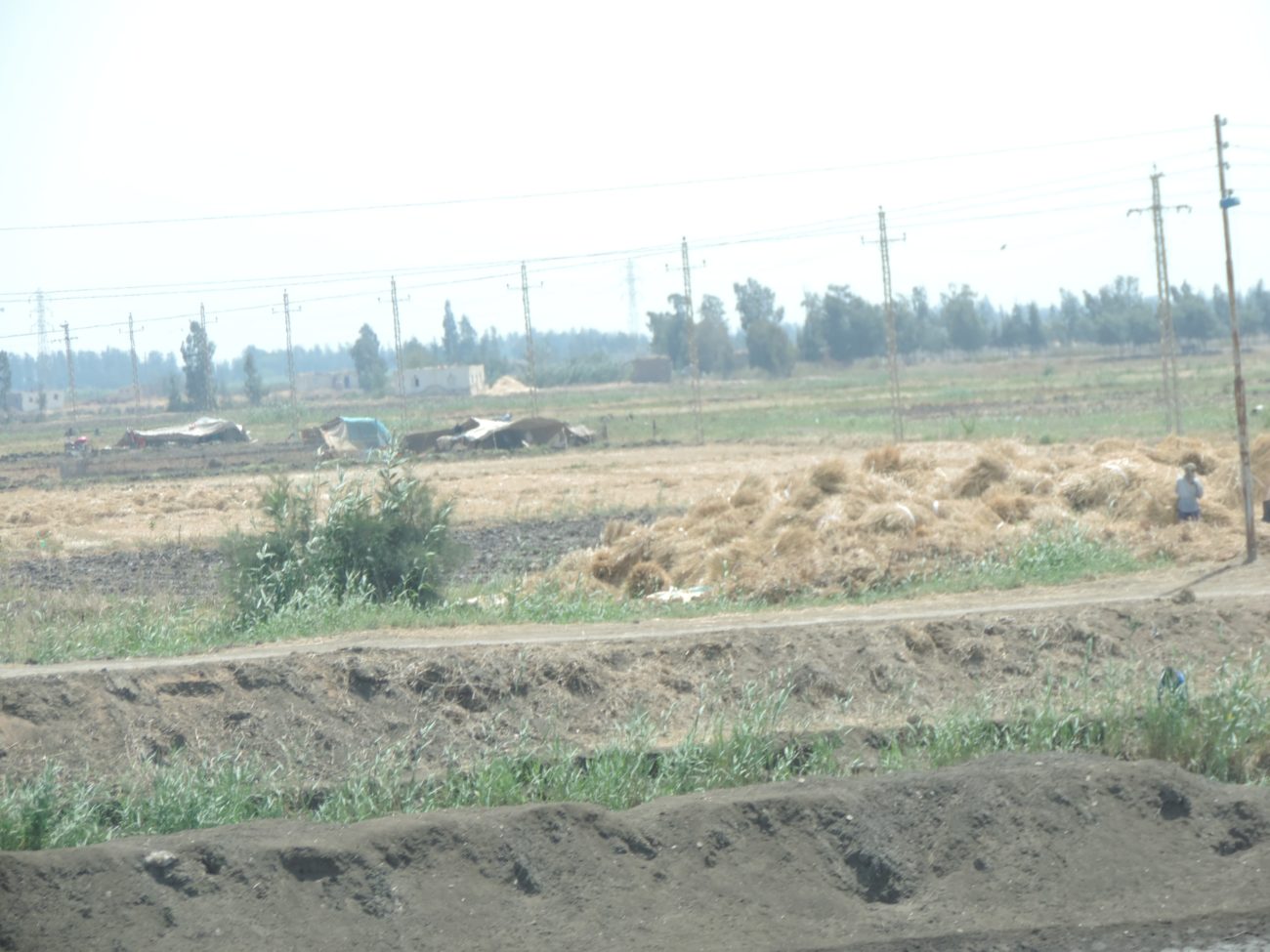
At the end of each season, Bedouin nomads often come and ask Madame Samia to purchase crop rests by the acre. They get permission to camp on her land with their tents and livestock for about 15 days, letting their animals graze. This year, the cultivated clover was infested with too many weeds for any trader to be interested in buying it. Thus, selling it to the Bedouin families was still the better option rather than letting it go to waste. The remains of the sugar beet crop are another sought-after livestock forage option. As Madame Samia admits, Bedouins settling on the land with their animals also provides extra benefits for the soil as well, as it is receiving free manure and the animals also eat the plant stubbles.
Madame Samia’s son, who is in his twenties, recently gave up a motorcycle business in Cairo to be able to help out his mother with the farm and come out to the area more often. Although he says he has no big interest in farming, he loves innovation and has several ideas for redeveloping the property. He is currently constructing a livestock shed for calf fattening, one of his passions. Madame Samia and her son do not directly engage in physical labor on the fields.
When in need of agricultural labor, especially during the harvest time, they recruit daily laborers from the nearby town Menshiet Abu Omar. Mother and son are very much engaged with government extension agents and researchers in order to improve their land – the heritage left behind by Fatma’s husband.

